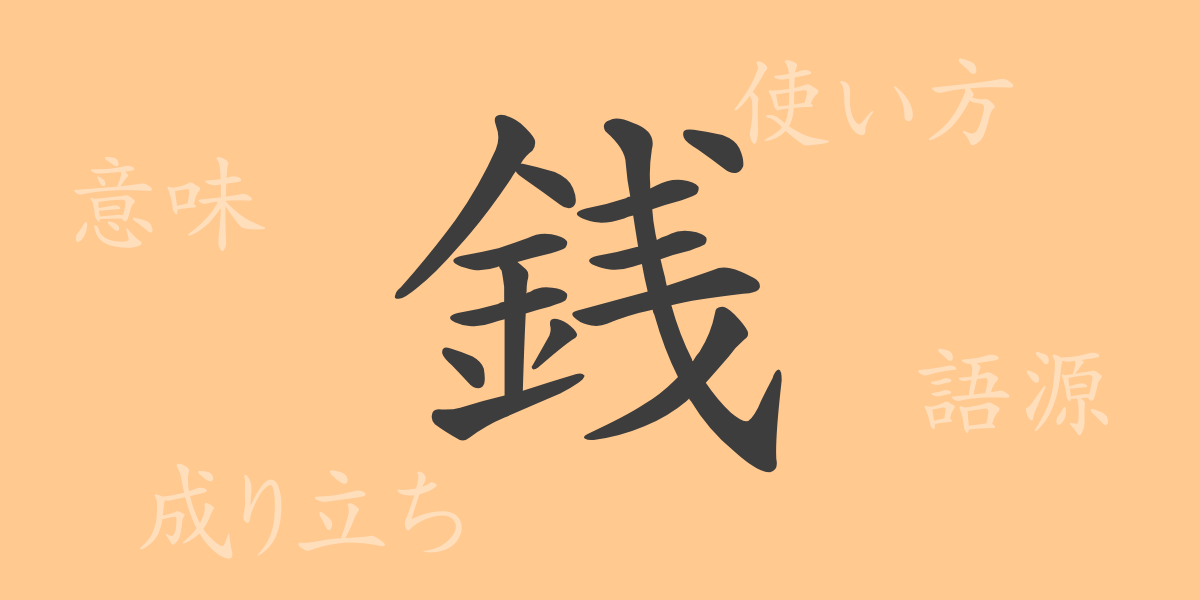The Japanese kanji “銭” (せん), deeply rooted in Japan’s history and culture, embodies much more than the mere value of money, rich with meaning and history. This article delves into the origins of “銭” and its contemporary usage, exploring the world of this fascinating character.
Origins of 銭
The origins of “銭” trace back to ancient China, initially deriving from “秤” (はかり), which meant a unit of weight. It evolved to represent money, specifically coined money, through Chinese history. “銭” became established as the term for minted coins and subsequently made its way to Japan. During the Nara period, copper coins introduced from China began to circulate, and “銭” was adopted to refer to money.
Meaning and Usage of 銭
Originally, “銭” specifically denoted coins, but over time, it has come to be used more broadly to mean money or cash in general. In economic transactions, “銭” serves as an essential medium for bartering and has also made its way into metaphorical expressions and idiomatic phrases.
Readings, Stroke Count, and Radical of 銭
“銭” is a common kanji used in various contexts within Japan.
- Readings: On’yomi (Sino-Japanese reading) is “セン”, Kun’yomi (native Japanese reading) is “ぜに”.
- Stroke Count: 14 strokes.
- Radical: The radical is “金” (かねへん), which relates to metal or money.
Phrases, Idioms, and Proverbs Using 銭
There are numerous idioms and proverbs that include “銭”. For instance, “金銭” (きんせん) refers to money in general, while “小銭” (こぜに) often refers specifically to coins. A well-known proverb, “銭の切れ目が縁の切れ目” (せんのきれめがえんのきれめ), suggests that when financial ties end, personal relationships do too, highlighting the fragility of human connections.
Conclusion on 銭
The character “銭” not only represents the tangible value of money but also plays a significant role in economics, culture, and personal relationships. Its influence pervades all corners of our lives and is set to continue unchanged into the future, reflecting its enduring relevance in society.

























